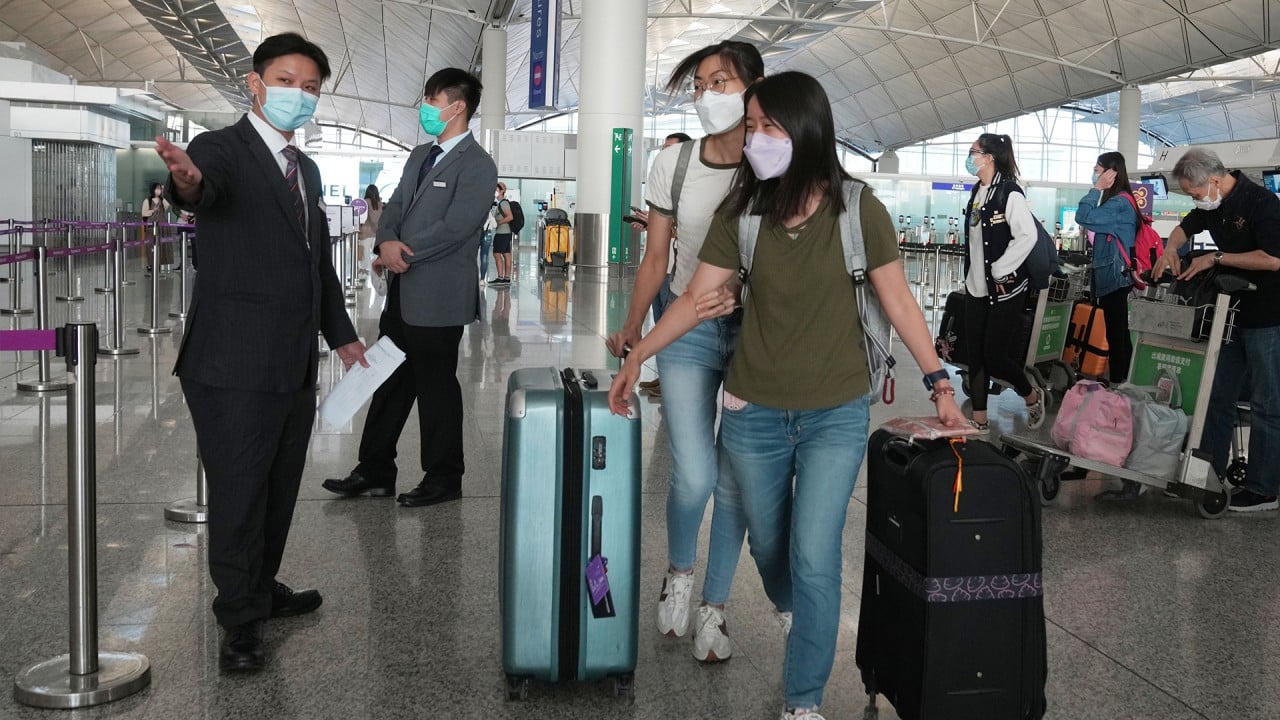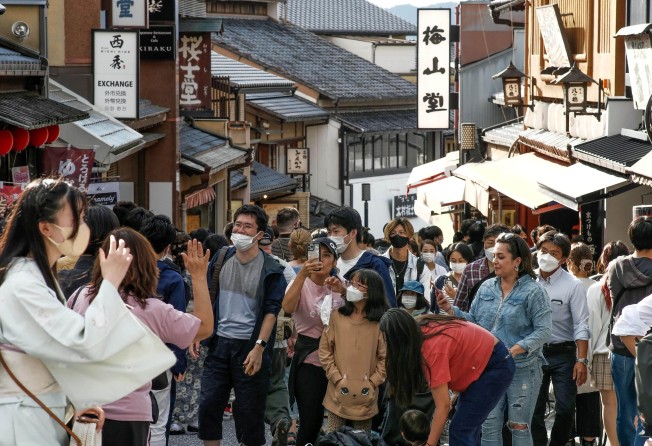
01:14
Japan fully reopens to tourists after dropping Covid test, easing visa requirements

To say that the hospitality industry has had a rough time over the past two-and-a-half years would be a gross understatement. The Covid-19 pandemic pulled the rug out from under the sector as lockdowns and travel restrictions were imposed.
In the Asia-Pacific region – which relies heavily on international tourism and has a thriving meetings, incentives, conferences and exhibitions market – hotel occupancy rates plummeted to between 20 and 40 per cent soon after the pandemic erupted. In 2020, transaction volumes in the region’s hotel market slumped to just over US$6 billion, less than half their level in 2019.
Yet, as economies reopen, and pent-up demand for leisure and corporate travel drives up occupancy and daily rates, a recovery is taking hold. According to hotel data provider STR, the average occupancy rate in the main cities across the region reached 61.3 per cent in August, compared with 73.7 per cent in August 2019. In markets such as Singapore and Mumbai, occupancy currently exceeds 70 per cent.
Moreover, investment activity in the sector has picked up sharply, underpinned by record levels of capital waiting to be deployed, particularly among private investors across the region. In the first nine months of this year, transaction volumes reached US$8.4 billion, 72 per cent of which was in Japan, Australia, South Korea and China, data from JLL shows.
Last Tuesday, Japan, the last major advanced economy with tight border controls, began accepting vaccinated overseas visitors, marking a milestone in Asia’s post-pandemic recovery.
Although Japan relies mainly on domestic tourism, Nihat Ercan, head of investment sales for Asia-Pacific at JLL, said the reopening sent a strong signal that Asia’s second largest economy, and the region’s most actively traded hotel investment market, was returning to normality. “Asia is emerging from its Covid slumber,” Ercan said.
However, as the region learns to live with the virus, its largest economy continues to keep its borders closed. China’s “dynamic zero-Covid” policy, which will remain in place for a longer period than many had anticipated, is a major drag on the recovery.
In a sign of the extent to which the draconian restrictions are holding back growth, Chinese tourists only accounted for 4 per cent of all international arrivals in the region’s most popular destinations in the first seven months of this year, down from 25 per cent in 2019, data from CBRE shows.
For markets that are heavily dependent on Chinese tourists, Beijing’s zero-tolerance approach to the virus has caused significant damage. In Vietnam, where Chinese tourists accounted for close to a third of all foreign arrivals in 2019, the occupancy rate last month was more than 25 per cent below pre-pandemic levels, the worst performance in Asia, according to STR.
Still, other indicators show Asia’s hotel industry as a whole is performing relatively well despite being deprived of its single most important feeder market. Hotels’ average daily rates in the top markets in Asia in August were only 8 per cent below their levels in August 2019, data from STR shows.
Steve Carroll, head of hotels and hospitality for Asia-Pacific at CBRE, said “the pace of the recovery without China being there has surprised everyone”. In a report published last month, CBRE noted that hotels’ uniquely short lease periods, which are measured in days rather than months or years, enabled operators to adjust their prices much more quickly, allowing hotel properties to serve as a more effective hedge against the surge in inflation.
Just as importantly, China’s zero-Covid policy is just one of several challenges facing Asia’s hotel industry. The most pressing one right now is the acute shortage of staff preventing airlines from adding more capacity to meet the surge in demand.
Seat capacity in Northeast Asia and Southeast Asia in the first week of October was 20-30 per cent lower than in the first week of October 2019. “Hotels complain they don’t have the staff, but the airlines have it worse,” said Jesper Palmqvist, senior director for Asia-Pacific at STR.
Another major drag on the recovery is rapidly rising costs for consumers and businesses. While travel spending is increasing sharply across the board, with airline fares soaring, hotel operators face huge increases in operating expenses, particularly labour costs.
The dramatic rise in interest rates, the fierce rally in the US dollar and the growing risk of a global recession are putting Asia’s hotel sector under further strain. However, Japan, where borrowing costs remain in negative territory and the yen is at a three-decade low versus the dollar, is a magnet for foreign investors.
Indeed, even investment activity in China is expected to hold up due to disposals of assets by vulnerable developers. JLL expects Beijing’s deleveraging drive to contribute towards US$2 billion worth of deals next year, the second most active hotel investment market after Japan.
Without the return of Chinese tourists, the recovery in Asia’s hotel industry will be incomplete. Yet, for a partial recovery, the sector is performing remarkably well.
Nicholas Spiro is a partner at Lauressa Advisory